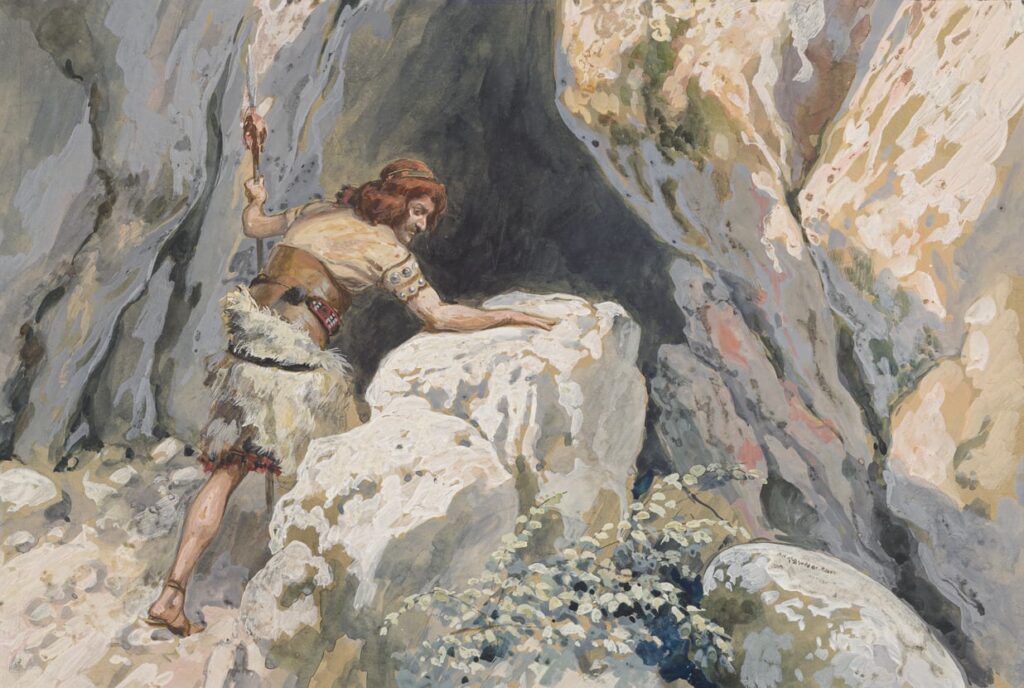This lesson I learned had little to do with the way I would lead and witness to others, but mostly to do with suffering and how I would respond. I had experienced relatively little life pain before this lesson, but as time would have it, the trials began to stack up. The fire of the furnace of life began to make me feel less like Joseph in the palace and more like Job on the trash dump. David teaches us how to handle these times, and the Spirit will use it to refine and increase virtue in you if you will allow it.
David was not even close to being exempt from the trials of suffering, and most often it came in the form of betrayal. He was betrayed by nearly all of those closest to him. His parents (Ps. 27:10), his siblings (1 Samuel 17), his best friend (Ps. 41:9), his wife (2 Samuel 6:20-21), his children (2 Samuel 15), and his father-in-law, king, and role model (1 Samuel 19) all had turned against David at some point to satisfy their own vices. Betrayal is something different. It is a pain sharper than any other emotional blade. When you give the whole of your love to someone who is supposed to nurture and care for it, to watch and feel it be disregarded is unparalleled in the despair it produces.
The question is not about if trials and suffering are going to happen, but when. The next step is the most important. When the suffering and the temptations come, how are you going to respond? Are you going to turn to God or to the world? It is in these times that many abandon their beliefs and begin engaging in vices to ease the pain or use what happened as justification for radical negative change. They retaliate against those who harmed them, they hurt those around them, they become angry with God, and they are stumped in their spiritual development. Many people will default to the example provided to them by their parents. If they were abandoned, they will abandon. If they were lied to, they will lie. It takes a turning to Christ and allowing his love and grace to heal the wounds in order to break the spiritual cycle. Additionally, therapy is crucial to helping with the psychological effects. I would suggest to you, that while it is extremely disheartening to see those who cause such destruction not repent, do not fret about them. You are in control only of yourself. The Lord will deal with them as He sees fit (Deu. 32:35, Rom. 12:17-19, Sirach 2:12-18).
David models for us how to pivot physically, mentally, and spiritually toward God and healing. While the fires of suffering can be immense, they can refine and transform us if we allow it (Ps. 66:10, Sirach 2:1-11), and then you can be a witness to others as a testament of valor and strength (Pr. 27:17). You see, God is the refiner of silver (Malachi 3:3), and suffering is the mode of purifying our spirits, and is the catalyst for sanctification.
Adullam was the cave that David and his men were forced to flee to after Saul decided to turn against David. Saul had not just decided to pursue David, but to relentlessly hunt him. Saul had even gone back on his word several times to not kill David. It was here in this cave that several important events and writings were written to provide us with an example of what to do in suffering, especially that of betrayal. It was here that David wrote what would become Psalm 57 and Psalm 142. While caves are not the usual or most optimal places we would like to find ourselves in, it is in this still, dark, quiet place that we can reflect on God, calm our minds, and reorient our spirit in the direction we should go.
Psalm 57 is titled as “A Miktam of David.” A miktam is more like an instructional “how to” when we find ourselves in a particular situation. David calls on God’s mercy and places his soul in God’s refuge. While those around him and closest to him were plotting his death and destruction and pushing him into suffering, David tells God of what he is going through. Then he pivots. He begins praising God, giving thanks to God, and making definitive statements about how he would proceed with God’s help and promises. “I will awake the dawn!”, “I will give thanks to You, O Lord, among the peoples.”, “I will sing praises.”, etc., etc. These are definitive statements. He does not say, “I will try.” He says, “I will.”
Psalm 142 is a maskil song, or a teaching song. It is meant to transfer wisdom, and David does so also in a prayer. Here David is crying to God, exhausted, with a faint spirit. He tells us he is alone and that no one cares for him. We may feel like that too sometimes. We can have horrific events happen to us by loved ones, and it is almost as bad when others stay silent. David then makes a pivot. He goes from saying, “I have no refuge” to saying to God, “You are my refuge, my portion in the land in the living.” There may be times when someone may take everything away from us, but God is in control of everything, and He sees all. He will take care of everything in its time, even if we cannot see it. Everything happens according to His providence or His permission. As long as we have Him, we have all we need. You will always have your refuge and your portion in Him. No one can take that away from you.
You should be aware, there will be multiple caves in life. Adullam was not the end of David’s sufferings. Adullam was surrounding the events of just the betrayal by Saul. The ones of his wife, son, and friend were still to come! Guess what? David found himself in another cave, but this time he had peace. In Psalm 5, David makes his lament to God. Even still, he cries out and tells God of his troubles. At the end of Psalm 4, we read, “In peace I will lie down and sleep, for you alone, O Lord, make me to dwell in safety.” Even in the midst of suffering, we can still have joy and peace. How? By being still. David reminds us of this in Psalm 46:10, “Be still, and know that I am God.” First, be still. Calm your body, mind, and spirit. Then pivot to who God is. Know who He is. Remind yourself of His promises. He will not fail.
You are going to going through Adullam multiple times in your life. There are going to be multiple caves that seek to make you feel alone, betrayed, abandoned, and in pain. It is in these times that God can do his greatest work in you and through you. One day, while in God’s refuge, the storm will pass (Ps. 57:1), the night will be gone, and the joy will come in the morning (Ps. 30:5). Deliverance is on its way. Vindication is coming. Restoration and blessings will be given to the faithful. Be still in the cave. Be refined in the darkness and the isolation. One day, those around you will see what God has done as you give Him all of the praise and glory.
Amen.

